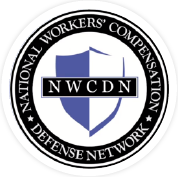WISHA Litigation – Repeat Violations
On June 1, 2006, the Washington State Supreme Court issued a significant decision concerning WISHA’s burden of proof to cite for a “repeated” violation as well as an Employer’s ability to recover attorney fees in WISHA litigation. The case involved fall protection violations of Cobra Roofing Services, Inc (“Cobra”). A number of construction industry groups, including AGC and ABC, filed supplemental briefs in the case.
The issues were: (1) whether Cobra Roofing’s fall protection citation was properly classified as a “repeat” violation and, therefore enhanced penalties were appropriate? and (2) whether attorney’s fees under the Equal Access to Justice Act (EAJA) are available in proceedings before the Washington Board of Industrial Insurance Appeals, Superior Courts, the Court of Appeals and Supreme Court.
The essential facts were: In 1999, WISHA cited Cobra for violating the fall protection regulation found at WAC 296-155-24510. As a consequence of a February 22, 2000, inspection, Cobra was cited again for violating the fall protection regulation found at WAC 296-155-24510. This second violation was classified as a “repeat” and the penalty was doubled as a consequence. At hearing, WISHA put on no evidence and the hearing record contained no specific details regarding the nature of the 1999 violation or the conduct giving rise to the violation. Cobra argued that the statute required the Department to focus on the specific conduct supporting the violation in order to cite for a “repeat.” WISHA argued that it only needed to prove that the violations involved the same type of hazard, not the same underlying conduct.
The Industrial Appeals Judge agreed with Cobra and determined there was insufficient evidence of a repeat offense because the Department failed to present any evidence of the conditions or conduct giving rise to the 1999 violation. Subsequently, the Board of Industrial Insurance Appeals (Board) reversed adopting WISHA’s view. Cobra appealed. The Superior Court reversed the Board and further ruled that attorney fees under the EAJA were not available for proceedings before the Board, but were available before the Superior Court. The Superior Court initially granted Cobra attorney fees. On reconsideration, the Court denied attorney fees because both Cobra and WISHA had prevailed on significant issues and WISHA’s actions were not unjust. The Court of Appeals reversed the Superior Court adopting WISHA’s view regarding “repeated” violations and affirmed the Superior Court on the attorney fee question.
In summary, on the question of “repeat violations,” reviewing the very same evidence, statute and administrative rules, the Industrial Appeals Judge and the Superior Court concluded there was insufficient evidence of a repeat violation, while the Board and Court of Appeals concluded there was sufficient evidence of a repeat violation.
In a 5-4 decision authored by Justice Charles Johnson, the Washington State Supreme Court held against Cobra on all issues. The Supreme Court majority held that WISHA need only show that a same type of hazard is involved to constitute a “repeat violation,” and therefore Cobra’s fall protection violations were repeat; and (2) EAJA attorney’s fees do not apply to administrative proceedings before the BIIA, and EAJA attorney’s fees do not apply to judicial review of WISHA citations.
There were four dissenting opinions. Justice Tom Chambers disagreed with the majority regarding the burden of proof for a “repeat violation” but agreed with the majority’s decision on the attorney fee question. Justice Sanders, Justice Alexander and Justice Johnson disagreed with the majority on both questions.
The practical impact of this decision is apparent on several levels. WISHA’s desire to broadly cite for “repeat” violations with enhanced penalties has now been endorsed by the Supreme Court. Absent a statutory change clearly specifying that “repeat” violations must be tied by “similar circumstances/conduct,” Washington State employers are now on notice that there are no “nuisance” citations. Every citation regardless of the size of the initial penalty should be seriously reviewed for appeal. Today’s “$500 invalid fall protection violation” (if not appealed and dismissed) will be $5000 tomorrow! In addition, Oregon employers who are trying to read the tea leaves regarding what to expect from the new OR-OSHA Administrator Michael Wood, should know there is little doubt Mr. Wood was the driving force behind WISHA’s pursuit of this litigation in his former job with WISHA.
Links to the written opinions are below:
Jun. 01, 2006 – 76064-1 – Cobra Roofing Services, Inc., v. State of WA, Dept of Labor & Industries
http://www.courts.wa.gov/opinions/?fa=opinions.opindisp&docid=760641MAJ
Jun. 01, 2006 – 76064-1 – Cobra Roofing Services, Inc., v. State of WA, Dept of Labor & Industries (Dissent)
http://www.courts.wa.gov/opinions/?fa=opinions.opindisp&docid=760641DI1
Jun. 01, 2006 – 76064-1 – Cobra Roofing Services, Inc., v. State of WA, Dept of Labor & Industries (Dissent)
http://www.courts.wa.gov/opinions/?fa=opinions.opindisp&docid=760641DI2
Jun. 01, 2006 – 76064-1 – Cobra Roofing Services, Inc., v. State of WA, Dept of Labor & Industries (Dissent)
http://www.courts.wa.gov/opinions/?fa=opinions.opindisp&docid=760641DI3

